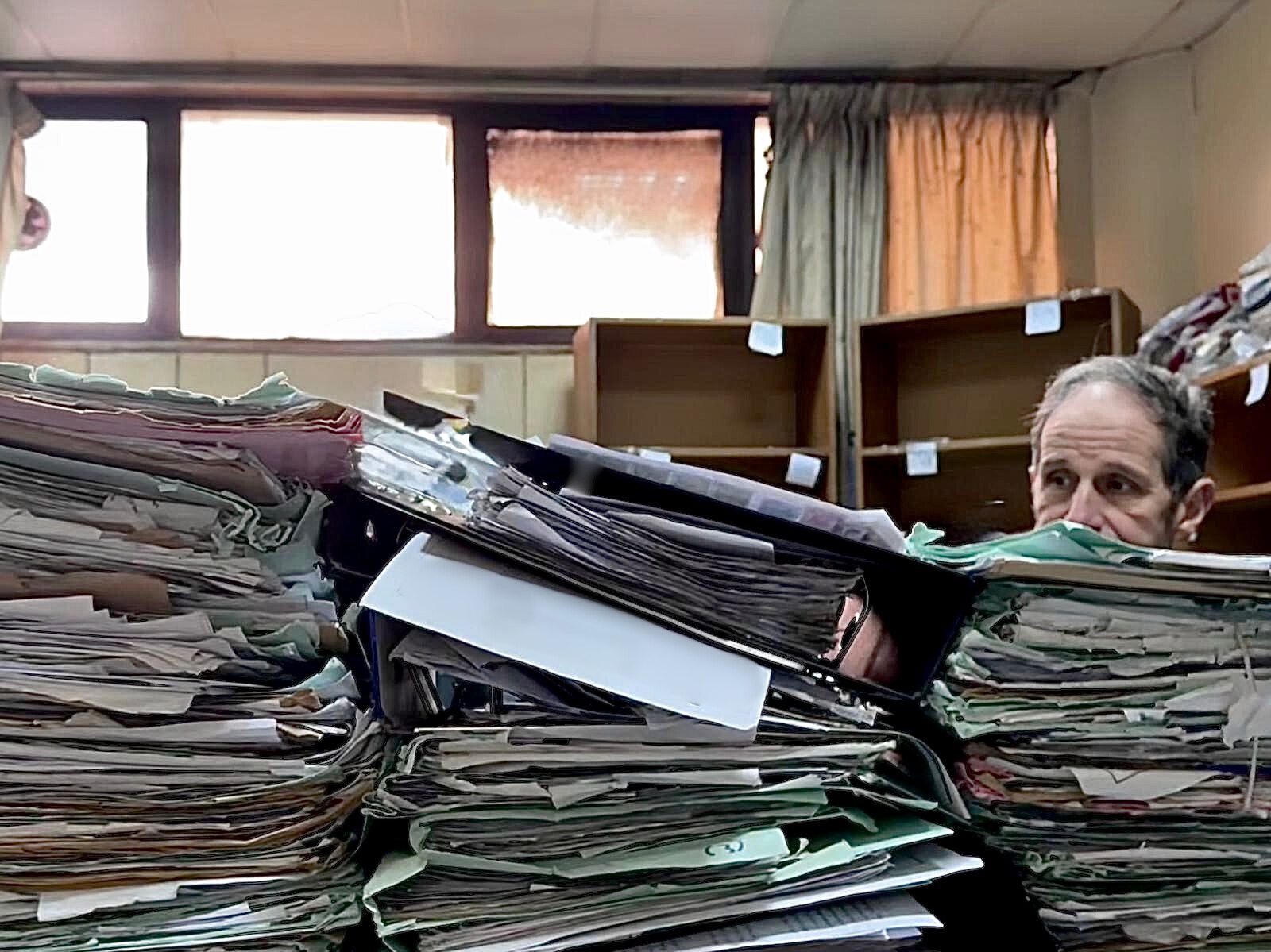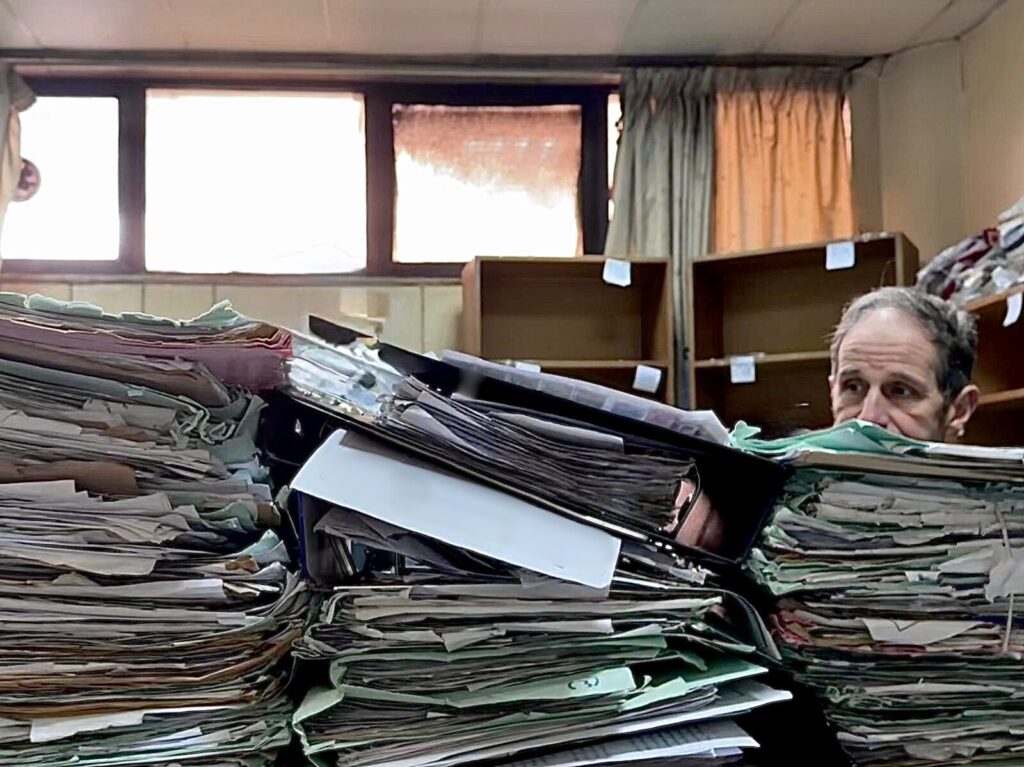

Head of Syria Accountability Mechanism Wraps Landmark Visit to Syria, Calls for International Coordination to Protect Evidence.
Damascus, Syria, 22 December – Robert Petit, the Head of the International, Impartial, and Independent Mechanism for Syria (IIIM), has concluded a historic visit to Damascus, Syria. Coming after the agreement of Syria’s caretaker authorities, it is the first time the IIIM is authorized to enter Syria and can discuss justice and accountability with Syrian officials. A significant milestone, coinciding with the exact date of the Mechanism’s creation eight years ago in 2016.
Mr. Petit’s trip is a critical step in advancing the IIIM’s efforts to preserve the evidence of international crimes committed in Syria and to ensure accountability for those responsible.
“Our ongoing work is to safeguard evidence and support justice processes for the countless victims impacted over the past 14 years,” said Mr. Petit. “The fall of the Assad rule is a significant opportunity for us to fulfill our mandate on the ground.”
After meeting with representatives of the caretaker authorities, the IIIM Head accessed a site of significant interest. “Even at one facility, the mountains of government documentation reveal the chilling efficiency of systemizing the regime’s atrocity crimes,” Mr. Petit remarked.
Mr. Petit highlighted the urgency of preserving the evidence before it is lost forever.
“Time is running out,” he stated. “There is a small window of opportunity to secure these sites and the material they hold. Each day we fail to do so, we risk losing the chance for comprehensive accountability.”
During his visit, Mr. Petit met with a number of Syrians impacted by the crimes committed during the past decade, including those who have recently returned to the country after years of exile. Their testimonies underscored a widespread demand for truth, justice and inclusion.
“Meeting with those who have suffered loss and exile was another sobering reminder of the human cost of this conflict,” said Mr. Petit. “They are asking: Where is the international community? They demand accountability. They want answers about their loved ones, and justice for the crimes committed against them.”
“I was deeply moved by the resilience of the Syrians I met in Damascus, who endured years of unfathomable inhumanity. Men and women from all walks of life are demanding that their voices be heard and that the truth of what they have experienced is brought to light. This is something we are fully committed to at the IIIM, ensuring that our work in support to jurisdictions is centered on Syrian victims and survivors.”
Mr. Petit further emphasized that achieving accountability will require cooperation and coordination among a wide range of actors.
“No single entity can address this challenge on its own,” Mr. Petit noted. “It will take a collective and concerted effort. Syrians, civil society organizations, and international partners leveraging their complementary mandates. As a priority all of us must work to preserve evidence of the crimes committed, avoid duplication, and ensure that all victims are inclusively represented in the pursuit of justice.” He added, “The IIIM was specifically created to assist this effort and is ready to play its part in full. The time to act is now.”
About the IIIM
The International, Impartial and Independent Mechanism (IIIM) is a United Nations organisation, established in 2016 by the UN General Assembly in a landmark vote. It is mandated to assist in the investigation and prosecution of individuals responsible for committing the most serious international crimes (including war crimes, crimes against humanity, and genocide) in Syria since March 2011.
The IIIM works to collect and preserve evidence from multiple sources to support current and potential future accountability proceedings. A significant number of its sources and information providers are Syrian civil society actors.
The IIIM’s work can be used by jurisdictions with the legal authority to prosecute international crimes, thereby supporting accountability for atrocities committed during the Syrian conflict.
It shares information, evidence and analytical products either in response to requests for assistance or proactively with competent jurisdictions.
It integrates a victim survivor centred approach and proactive strategies on gender and children/youth throughout its work, holding regular consultations and engagements with Syrian civil society and victim/survivor communities.
It is not a court or tribunal; it cannot issue indictments or conduct trials and does not have prosecutorial powers.
The IIIM is:
- Independent: Works without external instructions or influences. It does not share details of the justice processes it supports publicly except as authorised by competent jurisdictions.
- Impartial: Works to cover all international crimes committed by all parties in the conflict, no matter the affiliation, without bias.
- Rigorous: Applies international criminal law methodologies throughout all tracks of its work.
Since the start of its operations the IIIM maintained its efforts to initiate cooperation from the Syrian Arab Republic, in line with its commitment to impartial and inclusive justice. Its calls went unanswered until December 2024, when it was invited to access Syria for the first time. 48 hours later the IIIM Head led a small delegation to Damascus.
